As we begin the New Year, I am reflecting on all for which I have to be grateful. Towards the top of that list is finding a functional neurologist who has been instrumental in helping me rehab my brain injury.
I started this journey in February of 2014 after slipping on a patch of ice…and I can still hear the sound of my skull hitting the ice-covered concrete.
I immediately found a chiropractic neurologist who helped me with my whiplash, torn muscles, and dislocated sternum. He diagnosed me as having a severe concussion and told me I should start feeling better in about 4–6 weeks.
I kept complaining that I felt my eyes weren’t quite right, and that I was experiencing a lot of short-term memory problems and aphasia, as well as major dizzy and balance issues. He eventually sent me to a neurologist who didn’t seem to believe my issues were a problem (even though I couldn’t touch my nose with my pointer finger). When I later read her reports I had to laugh. She had stated that I was dressed nicely and was well-groomed, where in fact I hadn’t showered in days and was wearing the same yoga pants and sweatshirt I had been wearing for about 3 days — had she inquired, I would have outright admitted this to her!!
She eventually sent me for a neuropsychological exam to measure my deficits. After a grueling four-hour test designed to make you face your weaknesses, I scheduled a meeting with the neuro psychologist the following week. She very kindly explained to me the nature of the test, how it measures deficits, and how it is essentially “fake proof.” She then implied that I must have been faking because I scored too poorly in memory, that my scores were lower than a patient with dementia. After spending about 70 minutes with me, she assessed that I should be put on Ritalin, anti depressants, and sleep medication. I refused all three because I knew they wouldn’t actually “heal” me, and would be only a temporary crutch.
I had been begging every neuro doctor I saw for help. I didn’t know what type of therapy I needed, but I knew I needed something — cognitive, occupational, vision, anything that would help me get back to the person I used to be. The dizziness was sucking all the life out of me, and the short-term memory problems were causing quite a challenge to function in every-day settings.
I was incredibly frustrated as I went back to my neurologist about a year later. After a brief assessment, she told me because it was over a year since my injury that none of the therapies would likely help me. WHAT?? Then why on earth didn’t she send me earlier? I was confused, frustrated, and felt hopeless.
As a last resort the neurologist did eventually send me to a cranial sacral therapist who was the first person to help me find any sort of relief. His gentle treatment helped realign the skull plates that had been causing pressure inside my head. After several treatments, I felt a lot of relief from the “brain fog” that had been a 24/7 nuisance.
After two and a half years of struggling through life with a brain injury, my eyes were finally opened to the practice of Functional Neurology.
To be honest, I was skeptical. Every doctor I had seen up to this point had discouraged me, and my neurologist told me there was basically no hope for further recovery (even though I had learned that recovery can happen at ANY point after your injury).
My initial exam took almost two hours — TWO HOURS!! No doctor had spent more than a half hour with me up to this point.
My exam consisted of checking my:
- balance
- gait
- heart rate & blood pressure
- visual eye tracking (VNG)
- quick eye movements (saccades)
- optokinetic reflexes (OPK)
- Vestibular Ocular Reflexes (VOR)
- Chiropractic structural examinationzMy testing showed the following results:
- My autonomic nervous system was too sympathetic (startle response).
- My resting heart rate was too high.
- My gaze holding ability was questionable.
- All planes of my smooth pursuit eye movements were impaired.
- I was unsteady standing on flat surfaces, and would fall backwards when I closed my eyes.
- Spatial awareness and depth perception were impaired.
- My walking gait was impaired
- I had diminished sensation on the left side of my face and body.
- My visual and auditory reaction times were off.This doctor validated every single thing that I had been feeling. He said that we needed to work on all of the systems together and get them working properly again. He told me that the majority of my issues was coming from my eyes, and that we needed to retrain my eyes how to work properly. It was so comforting to know that I wasn’t crazy at all — it was just that those other doctors had been ignoring all of my issues because they weren’t trained in what to look for related to traumatic brain injuries and concussions (which is widely misunderstood by medical professionals).
Functional neurology is a way of thinking and assessing the nervous system by looking at what’s working well, what isn’t working, and what might be working too much. It’s about developing strategies to build better plasticity in how your nervous system is working. Dr. Schmoe believes that functional neurology should be a basic requirement in all medical and healthcare fields – but unfortunately it is not.
My doctor gained his knowledge by attending the Carrick Institute for those who have already graduated from the chiropractic program. The Carrick Institute program is an additional three years of training beyond chiropractic school. It is designed to give a deeper education and understanding of how the nervous system works and how to treat problems that arise as the result of a brain injury or disease. They offer courses to providers of al disciplines, including medical doctors, physical therapists, naturopaths, etc.
The doctor gave me treatment plans for each of my systems that weren’t working, which included:
- Gaze-stability exercises and vestibular rehab
- tilt table with electric stimulation to calm my startle reflex
- sensory stimulation on the left side of my body
- finger-to-nose cerebellum training on the left side
- ARP wave simulation on my neck (whiplash)
- Doctor applied FNOR techniques on my shoulder and scapula
- FNOR physical rehabilitation exercises to strengthen neck, core, and lower extremities
- Prologel to lessen inflammation in my neck from my whiplash that hadn’t healed
- D2 exercises to increase my hand-eye reaction times
- interactive metronome exercises to increase my auditory reaction times
- blood chemistry workup to check for anemia, infections, inflammation, auto immune disorders, thyroid and blood sugar levels
- dietary and nutrition supplements
Within just two weeks of working on gaze-stabilization and eye-tracking exercises, I was no longer feeling dizzy and off-balance. Dealing with dizziness 24/7 was a major energy suck, and I was starting to notice I now had more energy to get things done during the day than I had had since my accident.
I was starting to gain back feeling in the left side of my body, and my startle response was settling down. As a result of all of this, my anxiety levels were diminishing. It’s amazing how your body responds when you are no longer constantly living in a high pain threshold. I was finally able to go several weeks without a headache (which was great since I had been having headaches on an all-too-regular basis).
Now this isn’t to say that I am “fixed” …. I still have a long way to go. But I am finally feeling better than I have since February 2014. I wish I had found Functional Neurology a year earlier; then who knows where I would be in my recovery right now!
It astounds me how one doctor could improve so many of my symptoms with “simple” techniques, yet a plethora of trained neurological doctors didn’t do ANYTHING for me. This is why I am so passionate about the advocacy work that I do. Millions of brain injury survivors have not had proper treatment and were basically disregarded by the medical community — and written off by the psychologists as having “mental” issues rather than “physical” issues.
Some professionals have gone so far as to say that universally “everyone as a brain injury” now as a result of the media talking about concussions and sports. The reality is that we are just now beginning to understand the severity of concussions … and people who were injured decades ago are just now beginning to understand why they’ve felt and acted the way they have for so many years — as their brain injury went undiagnosed.
With proper treatment, the brain and neurological system has an amazing way of rewiring itself. The key is early detection and diagnosis, in combination with a trained doctor who understand how to best treat you … and NOT brush you off or disregard your concerns.
For help finding a Functional Neurologist who can help you, please download my free TBI Doctor Guide HERE
Originally published on Huffington Post 1/11/2017
Join me for my FREE 7 Day Wellness Challenge
https://awbcce2.aweb.page/p/0bfba5ff-a983-44a9-b1a8-21d09ff81058
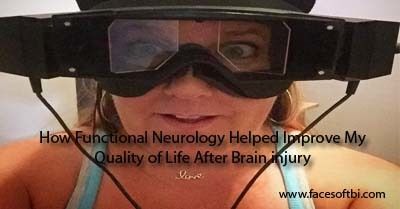
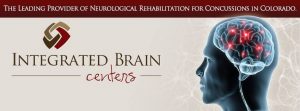 I am so excited to share with you!!
I am so excited to share with you!!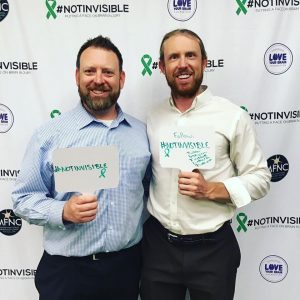




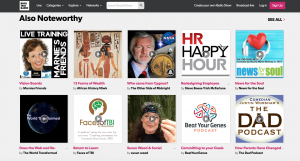
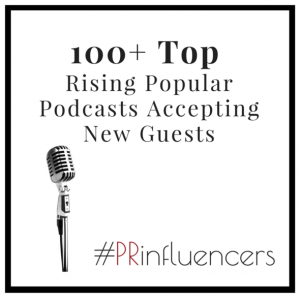
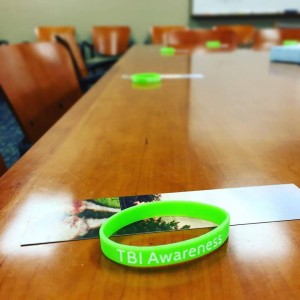 Yesterday I had the honor of being a guest at the
Yesterday I had the honor of being a guest at the